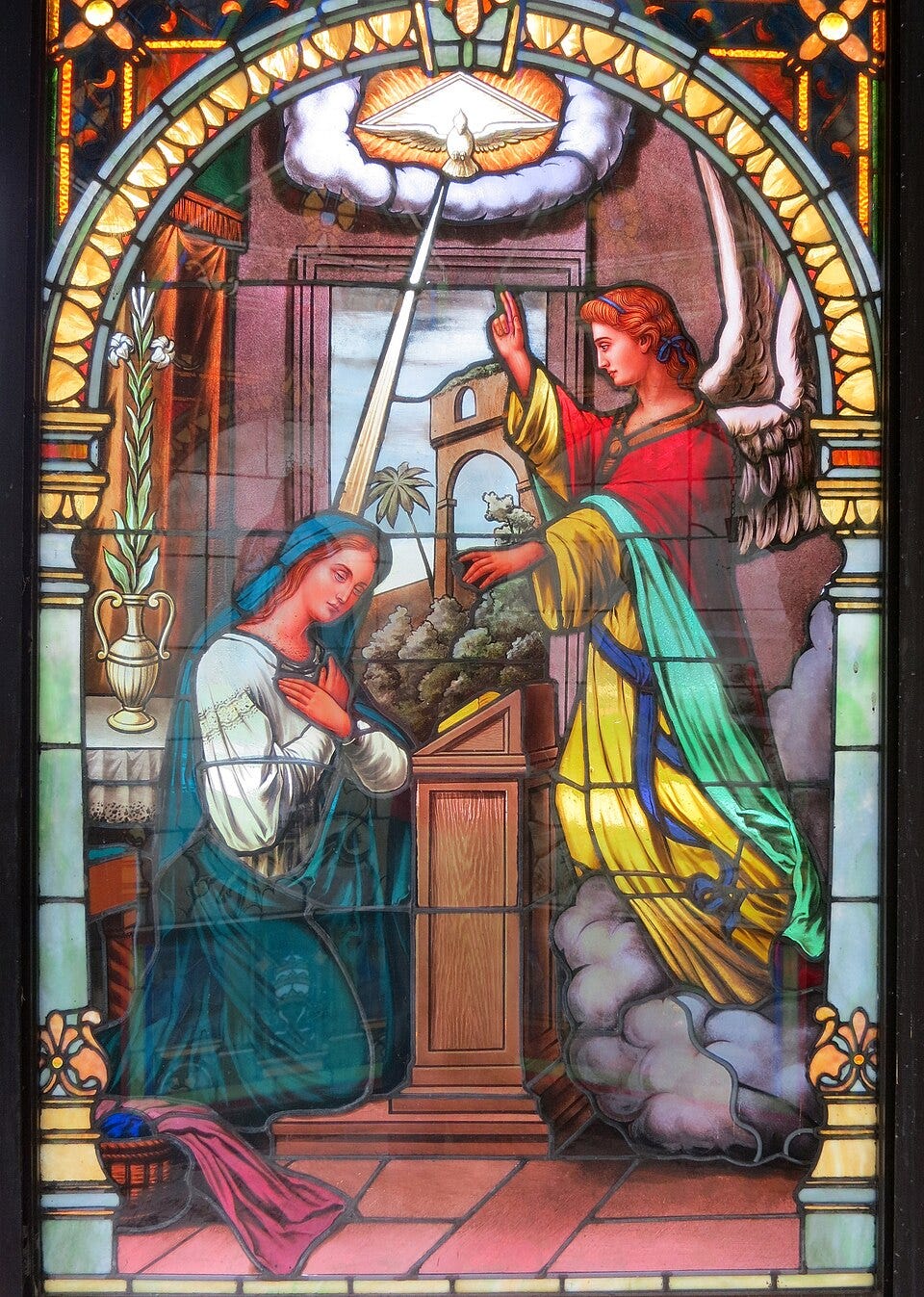
On March 25, the church celebrates the Feast of the Annunciation of our Lord Jesus Christ to the Virgin Mary.1 This is one of the most important events in the life of Jesus, because it’s where his life on earth begins. Imagine being a young, teenage girl who is suddenly in the presence of the angel Gabriel, and that angel announces to you that you, a virgin, will become pregnant, and that your child will be the “Son of the Most High” and reign on an eternal throne!2
Mary had questions: “How will this be, since I am a virgin?” Gabriel answers that she will conceive by the power of the Holy Spirit. Her answer is remarkable:
And Mary said, “Behold, I am the servant of the Lord; let it be to me according to your word.” And the angel departed from her.3
Most people would agree: Mary had reason to worry. She lived in a culture where getting pregnant out of wedlock could be a death sentence, but at the very least would lead to her being cast out of polite society. But she trusted God and put herself in his hands. Thankfully, her betrothed husband was a man of honor, as we learned last week, and he also heard from an angel that Mary’s child was the son of God.
why is it important?
Celebration of the annunciation tends to also include the conception of Jesus Christ, which is one of a handful of historical events deemed important enough to include in the Nicene Creed: Jesus “was incarnate from the Holy Spirit and the Virgin Mary, and was made man.”
Christmas day is of course a day when we celebrate the incarnation. But as Christians, we believe that the incarnation began not with birth, but with conception, when God became man. He became God with us; he came to redeem all mankind. This plan had been prophesied centuries before, but here, at Gabriel’s announcement to Mary, we see those prophecies begin to unfold. Why wouldn’t we celebrate that?
why is it on March 25?
Some say that it’s on March 25 because it’s nine months before December 25, when we celebrate Jesus’ birth. But as we discussed back at Christmas, others have speculated that it’s the other way around. It started with the idea that March 25 is the day Jesus was crucified. An old Jewish belief that a prophet or holy man would die on the anniversary of his conception meant he must have been conceived on March 25 as well, and from there they concluded that his birth must have been nine months later.
what do we do with Mary?
This event, though, raises one more issue of contention between most Protestants and the Roman Catholic and Orthodox traditions, and that’s Mary herself.
Most Protestant Christians object to how Mary is elevated by these traditions. They sometimes seem to give her a reverence that should only be given to Jesus himself.
I’d like to consider the question of Mary with more depth in the future, but I do think that one sad result of this situation is that Protestants are often afraid to talk about Mary at all: we dare not show her any respect or reverence for fear that we should be seen as worshiping her.
But looking at Mary’s story throughout the Gospels, I think it is clear that she is one of the most amazing women who has ever lived! She is someone we should love, respect, and try to emulate. And her journey begins with her words to Gabriel: “Let it be to me according to your word.”
The Annunciation is an excellent opportunity to remember what God becoming man really means for us, and to honor Mary for accepting her role in Jesus’ life.
Have you noticed that whoever named these feasts had no concept of brevity?
The whole story can be found in Luke 1:26-38.





This protestant is happy to celebrate Mary. I'm so glad to be learning these important dates from you